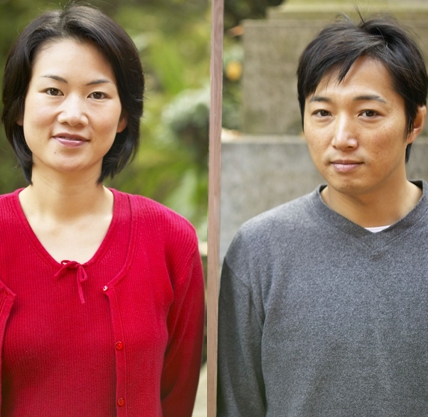
We hear all the time about differences between men and women's brains ... what about when it comes to brain injury? Are there any gender differences? Do women fare better or worse than men after a brain injury?
This is currently an area of controversy and the short answer is we don’t know. Controlled experiments in animals have shown improved survival and brain function among females after traumatic brain injury compared to males. However, multiple observational studies in humans have reported poorer outcomes among females after both severe TBI (Edna and Cappelen 1987; McMordie et al. 1990; Wilberger et al. 1991; Kraus et al. 2000; Donders and Woodward 2003; Kirkness et al. 2004; Morrison et al. 2004) and mild TBI (Rutherford et al. 1977; Rutherford et al. 1979; Jensen and Nielsen 1990; Bazarian et al. 1999; Bazarian and Atabaki 2001), (Farace and Alves 2000).
The reason for the discrepancy between controlled experiments in animals and observational studies in humans is not clear. Results from animal studies have been used to advance the idea that sex steroids such as estrogen and progesterone are protective (Stein and Hoffman 2003; Djebaili et al. 2005), which has led to at least one clinical trial of progesterone after moderate to severe TBI in humans.(Wright and Kellermann AL 2006).
Because of the implications for future clinical trials in humans, several groups of researchers are currently attempting to resolve the discrepancy between human and animal studies.
References
Bazarian, J.J., Atabaki, S. (2001). Predicting postconcussion syndrome after minor traumatic brain injury. Academic Emergency Medicine 8, 788-95.
Djebaili, M., Guo, Q., Pettus, E.H., Hoffman, S.W., Stein, DG. (2005). The neurosteroids progesterone and allopregnanolone reduce cell death, gliosis, and functional deficits after traumatic brain injury in rats. J Neurotrauma 22, 106-18.
Donders, J., Woodward, H.R. (2003). Gender as a moderator of memory after traumatic brain injury in children. Journal of Head Trauma Rehabilitation 18, 106-15.
Edna, T.H., Cappelen, J. (1987). Late post-concussional symptoms in traumatic head injury. An analysis of frequency and risk factors. Acta Neurochirurgica 86, 12-17.
Farace, E., Alves, W.M. (2000). Do women fare worse: a metaanalysis of gender differences in traumatic brain injury outcome. J Neurosurgery 93, 539-545.
Jensen, O.K., Nielsen, F.F. (1990). The influence of sex and pre-traumatic headache on the incidence and severity of headache after head injury. Cephalalgia 10, 285-93.
Kirkness, C.J., Burr, R.L., Mitchell, P.H., Newell, D.W. (2004). Is there a sex difference in the course following traumatic brain injury? Biological Research for Nursing 5, 299-310.
Kraus, J.F., Peek-Asa, C., McArthur, D.L. (2000). The independent effect of gender on outcomes following traumatic brain injury: a preliminary investigation. Neurosurgery Focus 8, 1-7.
McMordie, W. R., Barker, S.L., Paolo, T.M. (1990). Return to work (RTW) after head injury. Brain Injury 4, 57-69.
Morrison, W. E., Arbelaez, J.J., Fackler, J.C., De Maio, A., Paidas, C.N. (2004). Gender and age effects on outcome after pediatric traumatic brain injury.[see comment]. Pediatric Critical Care Medicine 5, 145-51.
Rutherford, W. H. (1989). Post concussion symptoms: relationship to acute neurologic indices, individual differences and circumstances of injury. Mild Head Injury. H. S. Levin and H. M. Eisenberg. New York, Oxford University Press: 217-228.
Stein, D. G., Hoffman, S.W. (2003). Estrogen and progesterone as neuroprotective agents in the treatment of acute brain injuries. Pediatric Rehabilitation 6, 13-22.
Wilberger, J. E., Harris, M., Diamond, D.L. (1991). Acute subdural hematoma: morbidity, mortality, and operative timing.[see comment]. J Neurosurgery 74, 212-8.
Wright, D. W., Kellermann A.L., Hertzberg, V.S., Clark, P.L., Frankel, M., Goldstein, F.C., Salomone, J.P., Dent, L.L., Harris, O.A., Ander, D.S., Lowery, D.W., Patel, M.M., Denson, D.D., Gordon, A.B., Wald, M.M., Gupta, S., Hoffman, S.W., Stein, D.G. (2006). Protect: A Randomized Clinical Trial of Progesterone for Acute Traumatic Brain Injury. Annals of Emergency Medicine 49, 391-402.
About the author: Jeffrey Bazarian, MD
Dr. Bazarian is an emergency physician with a strong research interest in traumatic brain injury. He is associate professor of Emergency Medicine, Neurology, and Neurosurgery at the Center for Neural Development and Disease, University of Rochester Medical Center.


Comments (2)
Please remember, we are not able to give medical or legal advice. If you have medical concerns, please consult your doctor. All posted comments are the views and opinions of the poster only.
Luke Rossman replied on Permalink
I’m a TBI survivor and have managed to begin studying for my MSW. My injury was 6/1998. Everyone has always told me that I couldn’t do things and I have been fortunate enough to accomplish them.
Brenda replied on Permalink
Mankind has an attitude that physical, violent abuse of women is acceptable & even ER doctors still often ignore obvious signs of TBI in treatment. If you skull isn't broken, you must be fine. This is especially true in some states & in rural areas. I know because I live in one. Animals in studies get the same attentions, no matter gender. Humans don't, not in ER, not before (or if) ER. Many women never receive any treatment for TBI, even when they are in ER for broken bones on the arms, neck &/or back. Domestic violence wounds are remarkably comparable to wounds from the battlefields of war.